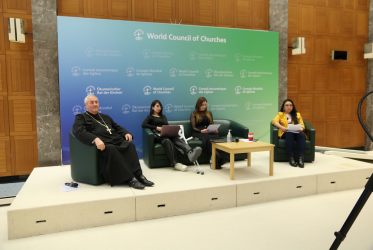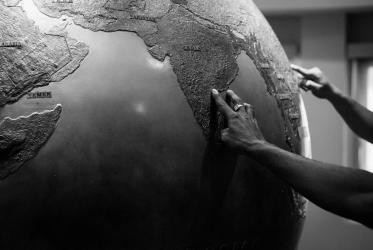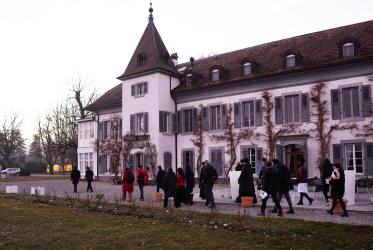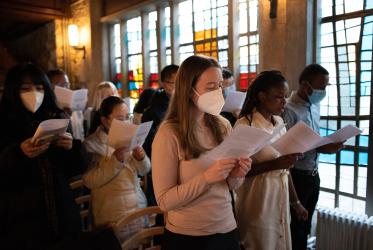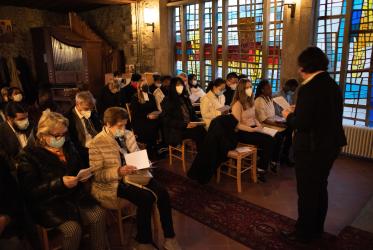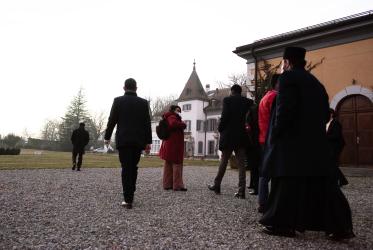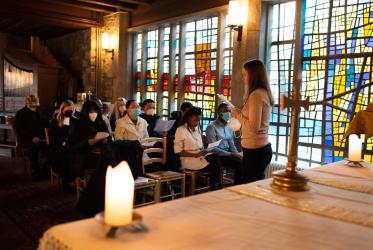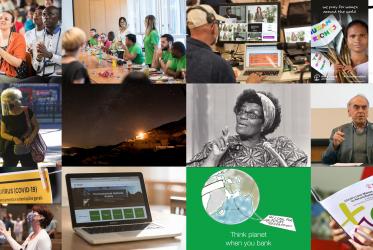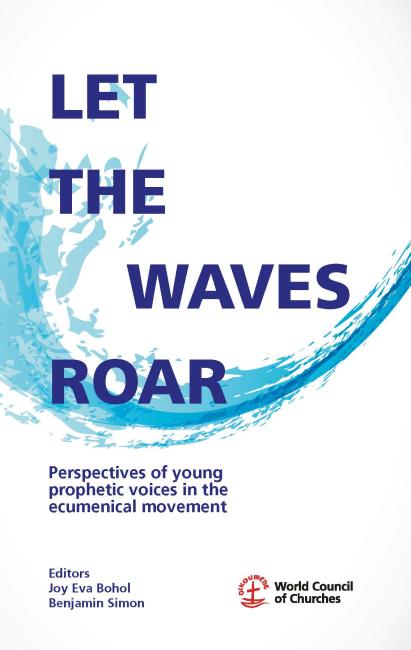Displaying 61 - 80 of 493
What do we hear when the ecumenical youth roar?
05 April 2022
Upcoming webinar will focus on COVID-19 and caste discrimination
24 February 2022
Bossey student Carolina Zamorano reflects on study visit to Rome
02 February 2022
Applications open anew for Bossey online course in ecumenism
13 January 2022
Let the Waves Roar
Perspectives of Young Prophetic Voices in the Ecumenical Movement
19 December 2021

